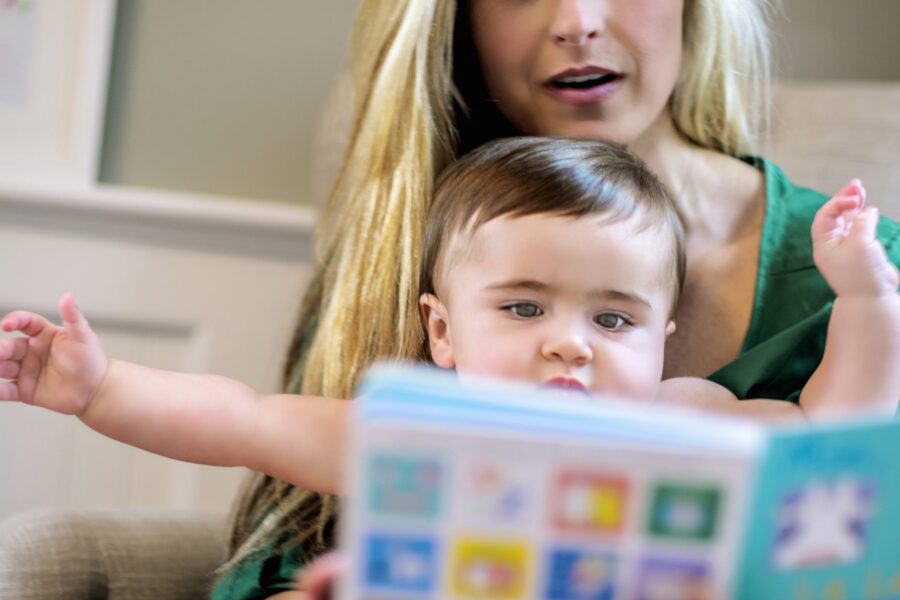Parenting Lessons for New Parents

Parenting Lessons for New Parents:
Introduction
Becoming a parent for the first time is a beautiful journey filled with joy, excitement, and challenges. While holding your newborn in your arms for the first time is a magical experience, the responsibilities of caring for a baby can often feel overwhelming. Many new parents worry about making mistakes or not knowing how to handle certain situations, but the truth is, parenting is a learning process.
With the right knowledge, preparation, and patience, you can make this journey smooth and fulfilling. This guide explores essential parenting lessons that will help you navigate this new chapter with confidence. From newborn care and emotional bonding to handling stress and avoiding common mistakes, this guide will prepare you for a rewarding parenting experience.
What Are the Basics of Parenting?
Understanding your baby’s needs is the foundation of good parenting. While every child is unique, certain principles can guide you in providing the best care possible. Babies require love, security, nutrition, sleep, and stimulation to grow and thrive. By focusing on these basic aspects, you can ensure your child’s well-being and development.
How Can You Bond With Your Baby?
Bonding with your newborn is crucial for their emotional and psychological growth. A strong parent-child connection creates a sense of security and trust, which helps in overall development.
One of the best ways to bond with your baby is through skin-to-skin contact (kangaroo mother care). According to a study published in NIH, kangaroo mother care (KMC), when compared to conventional neonatal care in resource–limited settings, significantly reduces the risk of mortality in infants born in facilities who are clinically stable and weighing less than 2000 g. Holding your baby close not only regulates their body temperature but also strengthens the emotional connection between you both. Talking and singing to your baby, even though they may not understand the words, is another excellent way to bond. The soothing tone of your voice provides comfort and stimulates language development.
Eye contact and facial expressions are also essential in building trust. Babies respond well to smiles and engaging expressions, which help in fostering emotional connections. Additionally, promptly responding to your baby’s cries reassures them that their needs will be met, strengthening the bond between you and your little one.
How Can You Create a Safe Environment for Your Baby?
Your baby’s safety should always be a top priority. Ensuring that your home is baby-proofed is crucial to prevent accidents and injuries. Here are some essential safety measures:
- Remove small objects that could pose a choking hazard.
- Secure furniture to prevent tipping accidents.
- Install child-safety locks on cabinets and electrical outlets.
- Ensure a safe sleeping space by placing your baby on their back in a crib with a firm mattress and no loose bedding or stuffed animals.
- Maintain cleanliness by regularly sanitizing baby bottles, toys, and surfaces to prevent infections.
By taking these precautions, you can create a secure environment where your baby can explore and grow safely.
Why Are Routines Important for Babies?
Babies thrive on consistency. Establishing predictable routines helps them feel secure and supports their overall development. Having a structured schedule for feeding, sleeping, and playtime can make parenting easier and reduce stress for both you and your baby.
According to a research published in Oxford academics, infants with consistent bedtime routines had longer sleep duration, fell asleep faster, and woke up less frequently at night. For example, a regular feeding schedule, whether breastfeeding or formula feeding, helps with digestion and ensures that your baby is getting proper nutrition. A bedtime routine that includes a warm bath, a gentle massage, and a lullaby can improve sleep patterns. Additionally, setting aside dedicated playtime each day helps with cognitive and motor skill development.
How Can You Master Newborn Care?
Caring for a newborn requires patience and practice. From feeding to hygiene, mastering these basics will make parenting less stressful and more rewarding.
What Are the Essentials of Feeding Your Baby?
Feeding your baby properly is one of the most crucial aspects of newborn care. Ensure that your baby is breast fed as breastfeeding provides more nutrition as compared to formula milk.
A study published in Journal of Korean Medical Science found that breastfeeding is associated with higher IQ scores in later childhood due to essential fatty acids (DHA and ARA) that support brain development. Breastfeeding offers numerous benefits, such as strengthening immunity and fostering mother-baby bonding. However, if breastfeeding isn’t an option, choosing a high-quality formula that meets nutritional standards is a great alternative. Recognizing hunger cues, such as sucking on hands or making sucking noises, can help ensure your baby is fed when needed. Also, burping your baby after feeds can prevent gas buildup and discomfort.
How Do You Take Care of Your Baby’s Hygiene?
Good hygiene is essential to keep your baby comfortable and healthy. Here are some basic hygiene practices:
- Change diapers every 2-3 hours to prevent rashes.
- Bathe your baby 2-3 times a week using mild soap and lukewarm water.
- Trim your baby’s nails regularly to prevent accidental scratches.
These simple practices can help keep your baby clean and comfortable.
What Are the Best Ways to Establish a Sleep Routine?
Many newborns have irregular sleep patterns, which can be challenging for parents. Establishing a sleep routine early on can help.
A good bedtime routine includes dimming the lights, playing soft music, and engaging in calming activities before sleep. Additionally, the Sleep Foundation recommends dimming household lights and turning off screens as part of the bedtime routine to help children wind down and prepare for sleep. Avoid overstimulation before bedtime to help your baby settle down. Additionally, encouraging day-night differentiation by keeping daytime interactions lively and nighttime interactions quiet can help your baby develop healthy sleep habits.
Ensuring Proper Hygiene for Your Baby
Maintaining good hygiene is essential for your baby’s health and well-being, as their immune system is still developing. Proper hygiene practices help prevent infections, skin irritations, and other health issues. This includes regular diaper changes, gentle bathing, nail trimming, and sterilizing feeding equipment.
Research supports the importance of hygiene in newborn care. A study published in the Cochrane Library highlights that proper hand hygiene among caregivers significantly reduces the risk of neonatal infections. Additionally, the American Academy of Pediatrics (AAP) emphasizes that regular diaper changes and cleansing with mild products help prevent diaper rash and other skin conditions. By following good hygiene practices, parents can create a clean and safe environment for their baby’s healthy growth.
How to Soothe a Crying Baby?
Crying is a baby’s primary way of communicating their needs, and learning how to soothe them effectively can provide comfort and security. Common calming techniques include gentle rocking , swaddling, skin-to-skin contact, and using white noise, all of which mimic the womb environment and help the baby feel safe. Ensuring that the baby is well-fed, burped, and has a clean diaper can also address common causes of discomfort. Additionally, some babies find pacifiers soothing, while others respond well to a warm bath or gentle massage.
Research supports the effectiveness of these soothing techniques. A study published in Current Biology found that carrying a crying baby while walking slows their heart rate and reduces distress due to an innate calming response triggered by motion.
How Can You Handle Emotional and Mental Challenges as a Parent?
Parenting can be emotionally demanding. Many new parents experience stress, anxiety, and even self-doubt. Learning to manage these emotions is essential for both your well-being and your baby’s happiness.
How Do You Manage Sleep Deprivation and Stress?
- Try to sleep when your baby sleeps.
- Share nighttime duties with your partner.
- Practice mindfulness and relaxation techniques to reduce stress.
What Should You Do If You Feel Anxious or Insecure as a Parent?
- Trust your instincts—every parent learns through experience.
- Avoid comparing yourself to others, as every parenting journey is unique.
- Seek support from family, friends, or parenting groups when needed.
Taking care of your mental health is just as important as taking care of your baby.
Postpartum Care
Postpartum care is essential for a mother’s physical and emotional recovery after childbirth. In the first few weeks, new mothers should focus on rest, proper nutrition, and hydration to support healing and milk production. Pelvic floor exercises, such as Kegels, can help restore muscle strength, while gentle movement and gradual exercise aid in overall recovery. Emotional well-being is equally important, as hormonal shifts, sleep deprivation, and new responsibilities can contribute to postpartum mood changes. Seeking support from family, friends, or healthcare professionals can ease the transition into motherhood.
Research underscores the importance of comprehensive postpartum care. The World Health Organization (WHO) recommends at least four postpartum checkups to monitor the mother’s physical recovery and mental health. Studies also indicate that 1 in 7 women experience postpartum depression, highlighting the need for emotional support and early intervention. Additionally, the American College of Obstetricians and Gynecologists (ACOG) stresses that balanced nutrition, adequate sleep, and gradual physical activity significantly improve postpartum recovery outcomes.
How Can You Effectively Communicate With Your Baby?
Even though newborns can’t talk, they communicate in various ways. Learning to understand their cues makes parenting easier and more rewarding. According to Kabrita Middle East, newborns, though unable to speak, engage in various forms of nonverbal communication to express their needs and emotions. They utilize sounds such as crying and cooing, facial expressions like eye contact and smiling, and body movements including leg motions to convey excitement or distress.
Babies have different cries to indicate different needs, such as hunger, discomfort, tiredness, or a need for attention. Observing body language, such as clenched fists or rubbing eyes, can also help you understand what your baby needs. Talking and singing to your baby not only comforts them but also aids in language development. Additionally, engaging in eye contact and responding to their coos encourages early communication.
What Are Common Parenting Mistakes and How Can You Avoid Them?
Even the most well-intentioned parents make mistakes. Here are some common pitfalls and ways to avoid them:
- Overprotecting vs. Encouraging Independence: While keeping your baby safe is essential, allowing them to explore safely helps in their development.
- Neglecting Self-Care: Taking care of yourself makes you a better parent.
- Comparing Development Milestones: Every child grows at their own pace, so avoid unnecessary comparisons.
How Can You Build a Strong Parent-Child Bond?
A strong bond with your baby is crucial for their emotional and social growth.
How Can You Engage in Meaningful Playtime?
- Playing with your baby strengthens your connection and aids in development.
- Simple games like peek-a-boo help with learning and interaction.
Why Are Family Traditions Important?
- Creating small traditions fosters a sense of belonging and creates lifelong memories.
How Can You Be a Positive Role Model?
- Babies learn by observing their parents, so model kindness, patience, and positivity.
When Should You Seek Professional Help?
Sometimes, parents need extra support. Consult a professional if:
- You notice signs of postpartum depression.
- Your baby has excessive crying, fever, or feeding difficulties.
- You feel overwhelmed and need guidance.
Conclusion
Parenting is a journey filled with learning, love, and growth. While challenges are inevitable, the rewards far outweigh them. By following these parenting lessons, you can create a loving, nurturing environment where your baby can thrive. Trust yourself, embrace the learning process, and enjoy every moment of this incredible journey.






